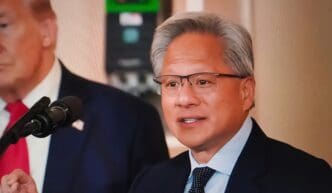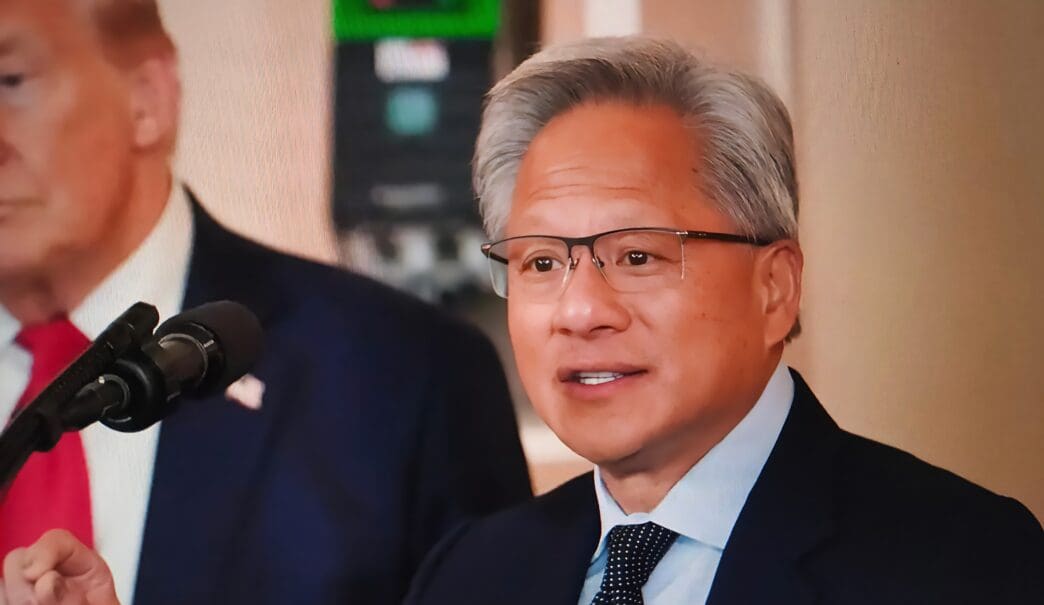Executive Summary
The Story So Far
Why This Matters
Who Thinks What?
President Donald Trump announced Wednesday that he intends to discuss U.S. export controls on Nvidia’s advanced Blackwell artificial intelligence chips with Chinese President Xi Jinping during their anticipated meeting on Thursday. Speaking to reporters aboard Air Force One en route to Gyeongju, South Korea, Trump praised the Blackwell model as a “super-duper chip,” highlighting a contentious issue in ongoing trade negotiations between the two economic powers. Washington’s restrictions on high-end AI chip sales to China, which accounted for 13% of Nvidia’s revenue last year, are aimed at preventing their use by the Chinese military.
U.S. Export Controls and China’s Opposition
Beijing has consistently opposed Washington’s export controls, which prohibit Nvidia from selling its most advanced AI chips to China. The U.S. has justified these restrictions by asserting that the chips could enhance the Chinese military’s capabilities. This regulatory environment has created a significant hurdle in bilateral trade discussions.
Trump expressed optimism about his upcoming meeting with President Xi, the first since his return to the White House. The second Trump administration has navigated a complex policy regarding Nvidia’s advanced chips in China, deliberating whether access would foster Chinese dependence on U.S. technology or inadvertently boost its military and tech sector.
Evolving Policy on Chip Sales
Earlier this year, the administration initially ordered Nvidia to halt sales of its H20 chip, specifically designed for the Chinese market. This ban was subsequently lifted three months later amid broader negotiations with China concerning rare earths exports. Despite the fluctuating policies, Nvidia developed a less powerful version based on its Blackwell architecture in response to the initial restrictions.
In August, Trump proposed allowing Nvidia to sell H20 chips to China in exchange for a 15% revenue share on some advanced chip sales in that country, potentially opening the door to more powerful chips. However, Nvidia has yet to ship any H20 chips to China, citing the U.S.’s unfinalized rules for payment collection and China’s discouragement of domestic firms from purchasing the California-based company’s products.
Nvidia’s Position and Chinese Market Dynamics
Nvidia CEO Jensen Huang, who is also expected to meet Trump on Wednesday, stated that his company has not applied for U.S. export licenses for its newest chips due to China’s current position. Huang remarked that China has “made it very clear that they don’t want Nvidia to be there right now,” emphasizing the importance of the Chinese market for funding U.S.-based research and development.
In response to U.S. export controls, Beijing has pressured Chinese firms to invest in and develop domestic chips. Despite these efforts, Chinese developers reportedly still seek Nvidia’s chips due to constrained supplies from local rivals like Huawei, according to previous Reuters reports.
Outlook
The upcoming discussion between President Trump and President Xi underscores the ongoing tension surrounding advanced technology exports, particularly AI chips, between the U.S. and China. The outcome of these high-level talks will likely influence global semiconductor supply chains and the strategic competition in artificial intelligence development.








